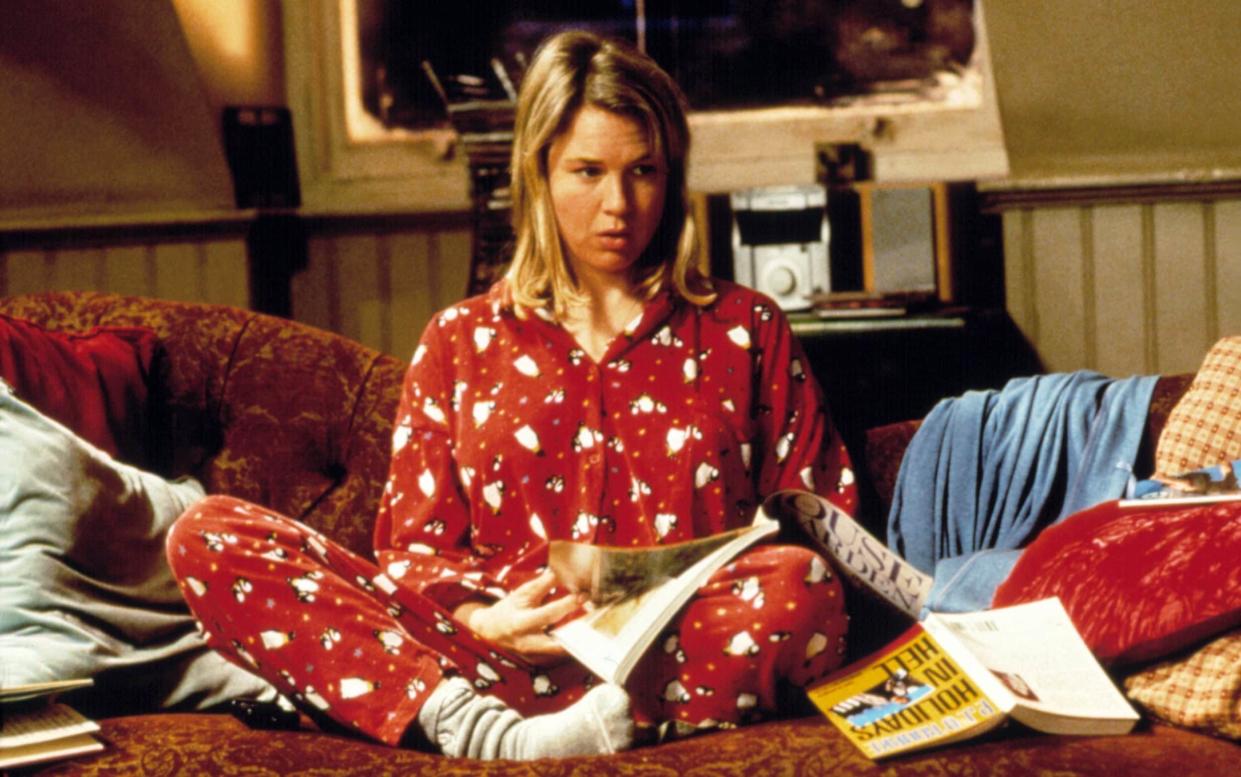Why women are using the pandemic as an excuse to stage a Christmas Revolution this year


In the run up to Christmas in this weirdest of years, people have divided broadly into two camps. The sensible ones, who think that Christmas is sadly not worth taking Covid-related risks over, and the silly ones (like me) who are desperate for bread sauce, childhood bedrooms and a fight over the last green Quality Street triangle at almost any cost.
But since the Government festive bubble rules were announced, a third group has quietly emerged: people who are using the virus as an excuse to finally have the Christmas of their dreams.
For every family experiencing the heartache of not being able to see one another (and I’m genuinely sorry for those), another is secretly pleased at being able to do things differently.
If you live with your partner and children, you’re loved up with someone you can’t resist, or your friends are your family, the idea of having Christmas exclusively with your own household might be incredibly appealing. No drunk aunts, moaning uncles or cousins who found spirituality during their gap year and insist on reminding you about the commercialisation of the whole thing.
Instead of putting your kids in the car for hours on end and spending the entire festive period worried they’re going to break something expensive, this is a chance to embrace Christmas on your own terms – and I’m talking to women in particular.
It sounds a bit Scrooge-like, but before passing judgment on the women who are using a global pandemic as an excuse to avoid their in-laws, let’s take a moment to reflect on the past year.
As The Telegraph’s Equality Check campaign has highlighted, the pandemic has been a disaster for women. Unemployment among female workers has risen by 0.9 per cent, compared with 0.7 per cent for men – with particularly hard-hit sectors such as retail and hospitality predominantly employing women.
We spent twice as much time home-schooling children, and the Review of Economics of the Household academic study found that women who cohabited with male partners were doing “most” of the housework. Meanwhile, fathers working from home managed three hours of uninterrupted work, compared with mothers managing to concentrate for a single hour without being disturbed.
So you can see why, when it comes to Christmas, women might be keen to take a break. Sage might have been accused of sexism this week, after its report on festive guidance said that “women carry the burden of traditions” – but it’s true, sexist or not.
Women do the majority of the shopping, planning and wrapping, and Christmas catering famously tends to fall to the females of a household (just 24 per cent of men play a significant role in the cooking process). Find me a married woman whose husband hasn’t turned to her at some point and asked: “What did we get for your sister?”
Between being expected to make Christmas happen, and spending the last 10 months being a nurse, teacher, chef and cleaner, is it any surprise that women have run out of patience and are refusing to do countless extra hours of unpaid domestic labour? To me it seems eminently sensible that women are staging a Christmas revolution, with the coronavirus as their silver bullet.
“For the first time in the decade we’ve been together, my husband and I are staying at home with our children,” says Clemmie*, 36. “It’s been a hard year and I put my foot down. I claimed it was because of social distancing, but really it’s because I’m not going to spend Christmas driving from house to house, apologising if the kids are hyper. This year it’s going to be the four of us, at home. The children can eat sugar, open presents and go absolutely bonkers and I’m not going to have to explain to anyone that they’re ‘not normally like this.’
“The Christmas rules did make it a bit trickier, but in the end my partner and I told our parents we would bow out gracefully so they could stick to the three-household rule.”
All over the UK women are turning their backs on the fiddly, time-consuming Christmas lunch, which uses every single pan and oven shelf in the house, and leaves everything under a film of turkey fat.
Parenting website Mumsnet – where much of the Big Christmas Revolution seems to be being plotted – is playing host to a long discussion about serving non-traditional food at Christmas lunch this year.
One woman excitedly wrote that instead of turkey, which she hates, she’s doing really nice cheese on toast. Pattie*, 31, is taking a similar route. “I’ve cooked every meal that everyone in this house has eaten since March,” she says. “I hate turkey. My in-laws, who love tradition and insist that lunch is served at 12.15pm on the dot whether that works for everyone else or not, are unable to travel because they live abroad (what a shame) and so we’re having steak. It’s going to be the first Christmas food I’ve ever really enjoyed and I cannot wait.”
It’s not just couples with children, either. Kate*, 28, told me that she and her boyfriend are delighted to have Christmas alone. “We’ve told our families that it’s because we can’t bring our big city germs home,” she says, “but in reality we’re both massive introverts. Who knows when we’ll next have an excuse to have a tiny, cosy Christmas at home?”
While anyone who’s got 15 nieces and nephews can sympathise, the word ‘excuse’ does raise a good point. Why did we need an excuse in the first place? Provided you’re not leaving a lonely or vulnerable relative alone for the festive period, and nobody's getting hurt, why should you feel obliged to do something over Christmas that you don’t enjoy?
We all know that between the logistics, the expense and the emotional chaos, Christmas can be a stressful time. There’s no shame in finding the festive period difficult, or in admitting that you would rather skip the whole thing and see your family in small doses throughout the year. Christmas is supposed to be a time of enjoyment, not obligation.


